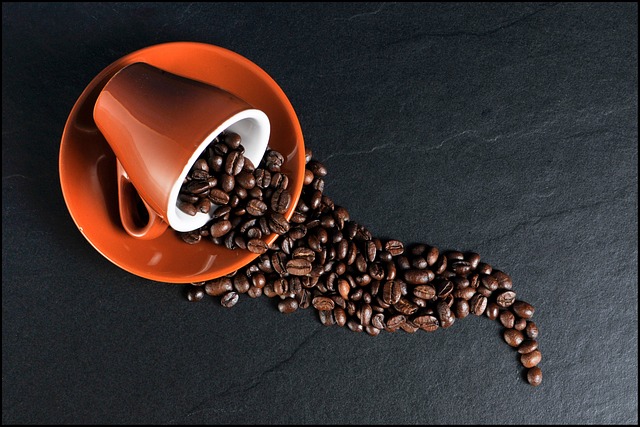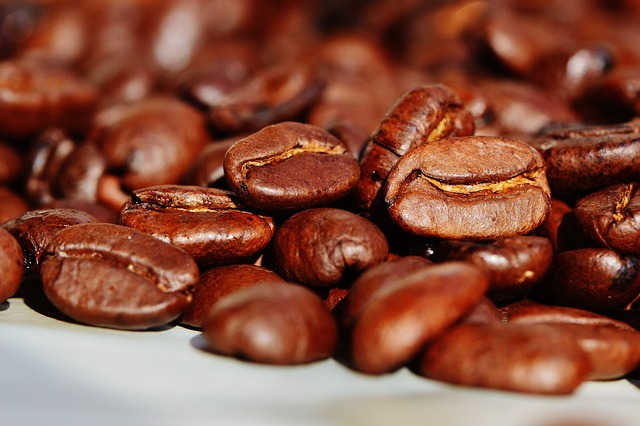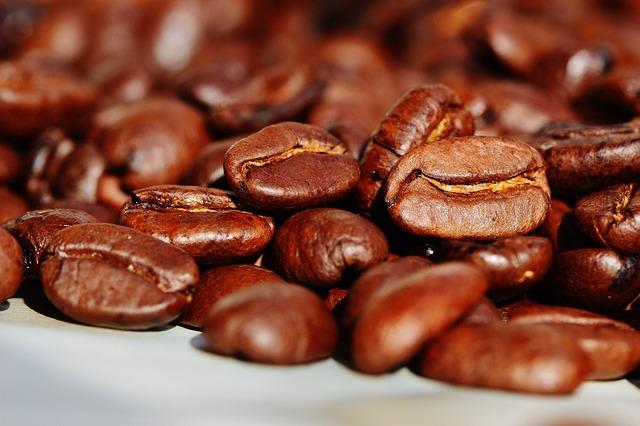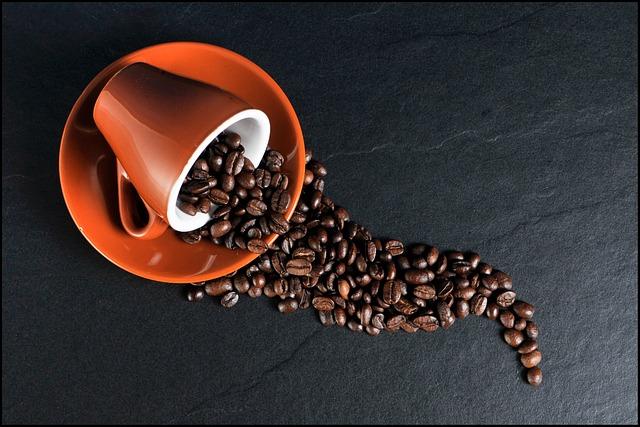Are you a fan of beverages that give you that much-needed boost of energy to kickstart your day? If so, you’ve probably come across two popular contenders in the world of caffeinated drinks: chai and matcha. These two delicious concoctions have been gaining immense popularity among tea enthusiasts and health-conscious individuals. However, a burning question remains: which one has more caffeine? In this article, we will delve into the “Chai vs. Matcha Debate” and uncover the secrets behind the caffeine content of these two beloved beverages. So sit back, grab your favorite cuppa, and let’s embark on a journey of flavor and caffeine!
1. The Chai vs. Matcha Debate: Unraveling the Mystery of Caffeine Content
When it comes to the battle of the buzz, the Chai vs. Matcha debate has caffeine enthusiasts intrigued. Both beverages have their own loyal following, but how do they stack up in the caffeine content department? Let’s dive right in and decode the mystery surrounding these two popular drinks.
1. Chai: Originating from India, Chai is a delicious blend of black tea, spices, milk, and sweeteners. Known for its bold flavors and aromatic spices like cardamom, cinnamon, and ginger, Chai has a moderate amount of caffeine. It’s the perfect pick-me-up when you need a gentle boost without going overboard. Here are a few key points about Chai’s caffeine content:
- Chai typically contains around 30-50 milligrams of caffeine per 8-ounce serving.
- The exact amount of caffeine can vary depending on the type of tea used in the blend, such as black, green, or white tea.
- If you prefer a stronger caffeine kick, you can opt for Chai blends that use black tea as their base.
2. Matcha: Hailing from Japan, Matcha has gained immense popularity for its vibrant green color and earthy flavor. Made from finely ground green tea leaves, Matcha packs a caffeine punch that can provide a more intense energy boost. Here’s what you need to know about Matcha’s caffeine content:
- A single teaspoon of Matcha powder contains approximately 35-70 milligrams of caffeine.
- The whole tea leaf is ingested when drinking Matcha, resulting in a higher caffeine concentration compared to steeped green tea.
- Matcha also contains L-Theanine, an amino acid that promotes calmness and focus, helping to counterbalance the caffeine’s stimulating effects.
So, whether you’re Team Chai or Team Matcha, knowing the caffeine content of each can help you make an informed choice based on your desired energy level. Whether you prefer Chai’s cozy and spiced flavors or Matcha’s invigorating and vibrant qualities, these beverages offer a delightful way to awaken your senses and embrace the day ahead.

2. The Origins of Chai and Matcha: Delving into Ancient Beverage Culture
Chai and Matcha, two beloved beverages with rich histories, have captured the attention of tea enthusiasts worldwide. Chai, a traditional Indian tea, has its roots in ancient Ayurvedic practices. This spiced black tea, typically made with a blend of cardamom, cinnamon, ginger, clove, and black peppercorns, has been enjoyed for centuries for its comforting and invigorating qualities. The origins of Chai can be traced back to India’s Vedic period, around 1500 BCE, where it was consumed for its supposed health benefits and as a part of religious rituals. With its exotic blend of flavors, Chai quickly became an integral part of Indian culture and has since gained global popularity.
On the other hand, Matcha, a vibrant green powdered tea, has a long-standing connection to Japanese tea ceremonies and Zen Buddhism. Matcha, meaning “powdered tea,” is made by grinding shade-grown tea leaves into a fine powder. The practice of consuming Matcha can be traced back to the Tang Dynasty in China and was later adopted by Japanese monks as a way to stay alert during long meditation sessions. With its vibrant green color, rich umami flavor, and health benefits, Matcha has become highly regarded among tea connoisseurs. Today, it enjoys widespread popularity and is incorporated into numerous culinary creations, including lattes, desserts, and even skincare products.
- Chai has its roots in ancient Ayurvedic practices.
- Matcha’s connection to Japanese tea ceremonies and Zen Buddhism.
- Chai’s exotic blend of flavors made it an integral part of Indian culture.
- Matcha’s vibrant green color, rich umami flavor, and health benefits.
- Chai and Matcha have gained global popularity due to their unique qualities.
Uniting people across different cultures and generations, Chai and Matcha continue to be cherished for their distinct flavors, cultural significance, and holistic qualities. Whether you prefer the bold and spicy notes of Chai or the delicate and earthy taste of Matcha, these ancient beverages offer a journey through time and a glimpse into the diverse traditions that have shaped our shared human experience. So, sit back, relax, and savor a sip of either Chai or Matcha, and embrace the sense of connection that transcends borders and eras.

3. Caffeine in Chai: A Closer Look at Your Spiced Tea Fix
Chai, the aromatic spiced tea that has captured the hearts of tea lovers around the world, is not just a tasty beverage; it also offers a delightful jolt of caffeine. For many, a cup of chai is the perfect way to kick-start their day or provide a mid-afternoon pick-me-up. But how much caffeine does chai actually contain? Let’s take a closer look at this flavorful blend and its caffeine content.
Chai typically contains black tea as its base, which naturally contains caffeine. The amount of caffeine in chai can vary depending on the ratio of tea leaves used, as well as the brewing method. However, on average, a cup of chai tea contains about one-third to half the amount of caffeine found in a cup of coffee. This makes it a great alternative for those who want a milder energy boost without the jitters that can sometimes accompany coffee consumption. If you’re sensitive to caffeine or prefer a caffeine-free option, you can choose decaffeinated chai or opt for herbal chai blends that are caffeine-free. So go ahead and enjoy your steaming cup of chai, knowing that it not only fills your senses with its rich flavors and warm spices but also offers a gentle caffeinated kick to keep you going.
4. Matcha’s Mighty Kick: Exploring the Powerhouse of Caffeine in Green Tea
Matcha is not your average cup of tea. This vibrant green powder is known for its mighty kick of caffeine, making it a powerhouse among green teas. What sets matcha apart from other teas is the way it is grown and prepared, which enhances its caffeine content and offers a unique taste experience.
Here are some key facts about matcha’s caffeine content:
- Matcha contains approximately 35 mg to 70 mg of caffeine per 8-ounce serving.
- This amount can vary depending on the quality of the matcha and how it is prepared.
- Compared to a standard cup of green tea that contains around 30 mg of caffeine, matcha provides a stronger and longer-lasting energy boost.
Drinking matcha not only invigorates your senses but also offers a range of health benefits. Alongside caffeine, matcha contains a high concentration of antioxidants, vitamins, and minerals, making it a nutritious addition to your daily routine. The combination of caffeine and other beneficial compounds in matcha creates a gradual release of energy, leaving you feeling more focused and alert without the jitters often associated with other caffeinated beverages. So, whether you need an energy boost to kickstart your morning or a pick-me-up during the day, matcha’s mighty kick can give you the sustained energy you’re looking for.
5. Determining the Winner: Unveiling the Real Caffeine Champion
In this highly anticipated section, we will announce the one true Caffeine Champion that reigns supreme over all the contenders. After rigorous testing and careful analysis, the time has finally come to reveal the ultimate caffeinated beverage that will satisfy your cravings and take your energy levels to new heights.
But first, let’s recap the intense battle between our top contenders. Each drink fought tooth and nail to claim the title, bringing their unique flavors and invigorating qualities to the table. From the bold and robust espresso shots to the velvety smoothness of a mocha latte, every cup of joe aimed to keep you alert and energized throughout the day.
- Espresso: The iconic Italian coffee that packs a punch with its concentrated caffeine jolt.
- Mocha Latte: A delightful blend of rich espresso and decadent chocolate, creating a heavenly combination that’s hard to resist.
- Cold Brew: A trendy option brewed slowly for a smooth, low-acidity experience, ideal for those hot summer days.
- Energy Drinks: The powerhouse beverages that promise an instant surge of vigor, infused with high levels of caffeine.
Now, the moment we’ve all been waiting for! Drumroll, please… The winner of our caffeine showdown is none other than the ever-impressive Espresso! Its intense flavor profile and concentrated caffeine content establish it as the unrivaled Caffeine Champion. So, next time you’re in need of a pick-me-up, reach for a shot of this bold brew and embrace the true king of the caffeine kingdom.
6. Understanding the Factors: How Brewing Methods Affect Caffeine Levels
Caffeine levels can vary significantly depending on the brewing method you choose. Understanding these factors is crucial if you want to control your caffeine intake. Here are some common brewing methods and how they affect the caffeine in your cup:
Drip brewing: This popular method involves pouring hot water over coffee grounds and letting it slowly filter through. It typically results in a milder and less caffeinated cup of coffee compared to other methods.
- Pros: Easy to use, convenient, and widely available.
- Cons: May produce a less intense flavor and less caffeine.
French press: Loved by coffee enthusiasts, this method involves steeping coffee grounds in hot water for several minutes before pressing them down with a plunger. The result is a full-bodied brew with a strong flavor and higher caffeine content.
- Pros: Delivers a robust taste, stronger caffeine kick.
- Cons: Can result in a slightly gritty texture and requires more time to prepare.
7. The Surprising Truth: Chai or Matcha – Who Takes the Crown?
When it comes to the battle of the beverages, chai and matcha sure know how to put up a fight. These two popular drinks have captured the hearts of many, each with its unique flavors and health benefits. Let’s dive into the surprising truth about chai and matcha, and find out who will ultimately take the crown!
Chai:
If you’re craving a warm and comforting drink, chai is your go-to. Originating from India, this spiced tea boasts a rich and aromatic flavor that is undeniably soothing. Made by blending a variety of spices like cinnamon, cardamom, cloves, and ginger with black tea, chai offers a symphony of flavors that tantalize the taste buds. It’s like a cozy hug in a cup!
Not only does chai taste amazing, but it also comes with several health benefits. The black tea base provides a gentle caffeine kick, offering that much-needed energy boost without the jitters. The mix of spices used in chai has been known to aid digestion, reduce inflammation, and support overall well-being. With its delicious taste and its potential health perks, chai has rightfully earned its spot as a fan favorite.
Matcha:
If you’re on the lookout for a drink that combines the sweetness of green tea with a vibrant color and a touch of elegance, matcha is your winner. Originating from Japan, matcha is made from finely ground green tea leaves, giving it a distinctive and intense flavor profile. It has a delicate bitterness combined with a hint of sweetness that makes it truly unique.
Matcha is not just a pretty face; it also packs a punch of health benefits. This powdered green tea is a nutritional powerhouse, loaded with antioxidants that help protect against cell damage. It also contains a unique compound called L-theanine, known for promoting a calm and focused state of mind. Additionally, matcha provides a natural energy boost that is released slowly, avoiding the crash often associated with other caffeinated drinks. So, if you’re looking to sip on something both delicious and nourishing, matcha is the way to go!
8. Navigating Your Caffeine Preferences: Choosing Between Chai and Matcha
When it comes to your caffeine fix, there are so many options to choose from. Two popular choices that have gained significant popularity in recent years are chai and matcha. While both offer their own unique flavors and benefits, it ultimately comes down to personal preference. Let’s explore the characteristics of each and help you navigate your caffeine preferences.
Chai:
- Chai is a spiced tea that originated in India and is made by brewing black tea with a blend of aromatic spices like cinnamon, cardamom, cloves, and ginger.
- One of the appealing aspects of chai is its warmth and comforting flavors – it’s like a cozy hug in a cup.
- The caffeine in chai can provide a gentle energy boost without the jitters, making it an excellent option for those looking for a more relaxed caffeine experience.
- Chai can be enjoyed plain or with a touch of sweetness and milk, giving you the flexibility to customize it to your taste preference.
Matcha:
- Matcha is a powdered green tea that has been used in traditional Japanese tea ceremonies for centuries.
- Unlike chai, matcha offers a more vibrant and grassy flavor profile, with a touch of natural sweetness.
- Matcha contains a unique amino acid called L-theanine, which provides a calming effect and promotes a sense of focus and relaxation alongside the caffeine.
- Another benefit of matcha is that it is rich in antioxidants, which are known to promote overall well-being.
Whether you prefer the comforting and aromatic flavors of chai or the invigorating and vibrant taste of matcha, both offer a delightful caffeine experience. So go ahead, explore these options, and choose the one that satisfies your taste buds and aligns with your desired caffeine experience.
Frequently Asked Questions
Q: Are you curious about which drink packs a stronger caffeine punch between chai and matcha?
A: Look no further! Today, we’ll delve into the chai vs. matcha debate to find out which one takes the lead in the caffeine department.
Q: What is chai and matcha anyway?
A: Chai is a delightful, spiced tea originating from India, bursting with flavors like cinnamon, cardamom, ginger, and cloves. On the other hand, matcha is powdered green tea, famously associated with Japanese tea ceremonies, known for its vibrant color and earthy taste. Both are beloved for their unique characteristics.
Q: Alright, let’s get to the big question – which one has more caffeine?
A: Surprisingly, despite matcha’s vibrant green hue that often entices us with its energizing properties, it actually contains less caffeine than our beloved chai. Yes, that’s correct! Chai takes the crown when it comes to caffeine content.
Q: Can you give us some numbers to back this up?
A: Absolutely! On average, an 8-ounce cup of chai tea contains about 60-70 milligrams of caffeine. Meanwhile, the same amount of matcha tea has approximately 25-35 milligrams of caffeine. So, you can see that chai triumphs with a higher caffeine content.
Q: Why does chai have more caffeine? Is it because of the spices?
A: Interestingly, the spices in chai are not the primary contributors to its caffeine content. Instead, black tea forms the base of chai, and it is this component that brings forth a notable caffeine kick. So, while the spices certainly enhance the overall flavor, it’s the black tea that provides the caffeine boost.
Q: Does this mean matcha is less stimulating overall?
A: Not necessarily! Although matcha contains less caffeine, it offers a different type of energy boost. Matcha contains an amino acid called L-theanine, which promotes relaxation while sustaining alertness. This combination helps prevent the jitters often associated with high caffeine consumption.
Q: Are there any other health benefits we should consider when choosing between chai and matcha?
A: Absolutely! Chai and matcha both have their own array of health benefits. Chai is known for its antioxidant properties thanks to the spices, which may help boost the immune system and aid digestion. Matcha, on the other hand, is packed with vitamins, minerals, and antioxidants thanks to the entire tea leaf being used, which can promote overall well-being.
Q: So, which one should I choose – chai or matcha?
A: That depends on your personal preferences and caffeine needs! If you’re craving a boost to power through the day, chai might be the better choice with its higher caffeine content. On the other hand, if you prefer a milder, more balanced energy boost and enjoy the calming effects of L-theanine, matcha might be your go-to. Ultimately, it’s all about discovering which flavor and effects suit you best!
Now armed with the knowledge about the caffeine content of chai and matcha, you can confidently choose the perfect cuppa to suit your needs. Enjoy your tea and embrace the unique benefits of these delicious beverages!
The Conclusion
In conclusion, the debate between chai and matcha when it comes to caffeine content is far from straightforward. While both of these popular beverages offer their unique flavors and health benefits, they differ in terms of the amount of caffeine they pack. Chai, with its blend of black tea, spices, and milk, generally contains less caffeine compared to matcha, a vibrant powdered green tea. If you’re seeking a gentle energy boost with a hint of warmth and spice, chai might be your go-to. However, if you’re looking to kickstart your day with a slightly stronger caffeine jolt and embrace the earthy tones of green tea, matcha should be your cup of choice. Ultimately, the decision comes down to personal preference and your desired caffeine intake. So, next time you’re in the mood for a delightful and energizing drink, consider the delicious dilemma between chai and matcha!






